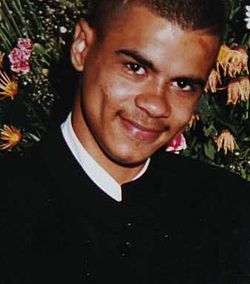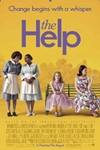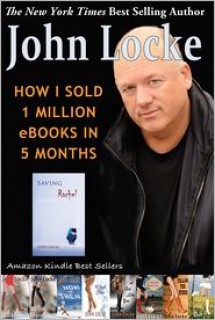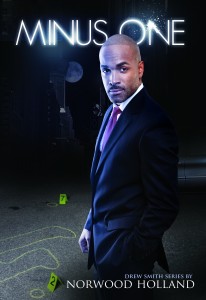Mark Duggan
August 19, 2011
 He was known as Starry Mark amongst his circle, but outside Tottenham London few had heard of Mark Duggan until August 4th when he died from a police inflicted gun shot wound. One witness reported the police shot Duggan at close range after they had pinned him to the ground. The investigation surrounding the shooting is being conducted by the Independent Police Complaints Commission (IPPC). Facts surrounding Duggan’s death remain murky. The 29 year old father of four was of mixed ancestry (British and Afro-Caribbean).
He was known as Starry Mark amongst his circle, but outside Tottenham London few had heard of Mark Duggan until August 4th when he died from a police inflicted gun shot wound. One witness reported the police shot Duggan at close range after they had pinned him to the ground. The investigation surrounding the shooting is being conducted by the Independent Police Complaints Commission (IPPC). Facts surrounding Duggan’s death remain murky. The 29 year old father of four was of mixed ancestry (British and Afro-Caribbean).
On August 6th Duggan’s relatives and local residents marched on the Totteham Police Station to demand information surrounding the circumstances of Duggan’s death. Some members of the crowd attacked two nearby police cars, setting them on fire. The incident sparked rioting across the city. Police officials later apologized for failing to provide information to the victim’s family in a timely manner and for providing the media with misleading information.
But for the police official’s failure to respond to family and public concerns the protest march and ensuing riot might not have occurred. In the aftermath the government’s swift crackdown and zero tolerance response under the guise of justice has been anything but with two people jailed for four years each for inciting riots on Facebook – riots that never took place – and one person sent to prison for six months for stealing $5 worth of water.
The British authorities are being criticized for its heavy handed reaction giving little attention to the causes behind the riots. Riots just don’t happen, but grow out a simmering discontent. Youth unemployment is the highest in 20 years. The British Office for National Statistics show the “inactive” population which comprises young people who are neither working nor unemployed stands at nearly 3 million, the highest level since the data was first collected in 1992. The analysis says two-thirds of these 16- to 24-year-olds are staying on in education, perhaps to stave off unemployment.
Compounding the problem in December British lawmakers pushed through a controversial hike in university tuition fees. Tens of thousands of angry students took to the streets of London and across the nation in protest arguing this effectively prices many out of a college education.
One wonders if similar signs of austerity and high youth unemployment in the States are likely with violent clashes signaling anti-establishment protests. In the 60s we saw African American communities destroyed by riots; many never recovered.
Austerity and riots take a heavy toll on the communities that can least afford them. Starry Mark wasn’t the cause of this riot but a human toll of global conditions.
On Boycotting The Help
August 10, 2011
 There are grumblings of a boycott of the motion picture to be released this week. A number of African American writers and readers are in awe and miffed by the success of Kathryn Stockett’s The Help; miffed because a white author tells an essentially African American story from a black perspective using a black voice. They are in awe because the book achieved an author’s dream of success with a best seller and an accompanying movie deal, but there is more, a back-story for which the author is being rewarded with a law suit.
There are grumblings of a boycott of the motion picture to be released this week. A number of African American writers and readers are in awe and miffed by the success of Kathryn Stockett’s The Help; miffed because a white author tells an essentially African American story from a black perspective using a black voice. They are in awe because the book achieved an author’s dream of success with a best seller and an accompanying movie deal, but there is more, a back-story for which the author is being rewarded with a law suit.
The plaintiff Ablene Cooper, a 60 year-old woman who as recent as February worked for the Stocketts as a maid, Ms. Cooper argues that one of the book’s principal characters, Aibileen Clark is an unpermitted appropriation of her name and image, which she finds emotionally distressing. Cooper alleges Stockett promised not to use her name and likeness. How much Cooper contributed to the overall story remains unclear. There is legal precedence for Cooper’s claims.
Set in Jackson Mississippi the narrator Skeeter a white female journalism graduate relies on the maids’ housekeeping skills and knowledge to land a job as the newspaper’s housekeeping columnist, a subject of which she knows nothing. Talk about art imitating life, there are far too many similarities between the principal character, Aibileen Clark and Ablene Cooper right down to the gold tooth and the death of a child.
Whites taking and profiting from the stories and music of black folks misrepresenting their source and authorship has been a long standing practice. We recently discovered how Alan Lomax appropriated research of Black scholar John W Work, Lomax’s conduit to pioneering blues artists like Muddy Waters and Son House. Joel Chandler Harris profited from his Uncle Remus stories collected from Southern Blacks. Not to mention how young Elvis Presley sneaked into black churches and honky-tonks immersing himself into the sounds and rhythms he would later grow to imitate. There are hundreds if not thousands of stories of how African-American artistic expression has been misappropriated for the benefits of whites.
Given the negative evaluations of black culture and community coming from the larger white-dominated society this seems to be a part of our legacy where there is white privilege and limited opportunities for disadvantaged minorities to tell their own stories.
My only criticism is Stockett’s initial use of dialect which the author seems to abandon as her story progresses. Having spent some time in Jackson Mississippi I never noticed such dialect. Overall, I believe it is an important story that should be told. And the motion picture does provide opportunities for African American actors. I’m reminded of Hattie McDaniel’s declaration “I’ve rather play a maid than be one.” We take the bitter with the sweet. I wish the author well with lucrative rights and royalties and Ms. Cooper an even bigger settlement.
As for our cultural contributions I’m hopeful for the day when African-American writers and filmmakers in greater numbers will dazzle audiences with our remarkable stories.
I read The Help but won’t be in any theatre lines–not intentionally boycotting just waiting for the Netflix delivery.
Hawking Dreams: A Review of John Locke’s How I Sold 1 Million Ebooks in 5 Months
August 5, 2011
 I finished How I Sold 1 Million eBooks in 5 Months feeling like I ate a full meal but yet left still hungry. My appetite unsatisfied I expected more though Locke delivered what he promised simply to tell his story. The best selling self-published author is the first to sell one million ebooks on Amazon. While it was not a single book but a crime series and a western title it nevertheless remains a major feat. With a two point business plan he offers sound advice more appropriate for the neophyte writer with dreams of making a mint selling ebooks. His advice is no different from dozens of other “How to for Dummies” books. Locke never claimed to teach successful internet marketing though he does rely on the three much touted tools of social media, Facebook, Twitter and a blog.
I finished How I Sold 1 Million eBooks in 5 Months feeling like I ate a full meal but yet left still hungry. My appetite unsatisfied I expected more though Locke delivered what he promised simply to tell his story. The best selling self-published author is the first to sell one million ebooks on Amazon. While it was not a single book but a crime series and a western title it nevertheless remains a major feat. With a two point business plan he offers sound advice more appropriate for the neophyte writer with dreams of making a mint selling ebooks. His advice is no different from dozens of other “How to for Dummies” books. Locke never claimed to teach successful internet marketing though he does rely on the three much touted tools of social media, Facebook, Twitter and a blog.
There is no secret formula. Locke is well trained in sales and marketing. His success came through trial and error recognizing what works and what doesn’t and building a solid marketing plan. Either by luck or happenstance he had the good fortune of writing a blog entry that went viral. That plus other efforts produced strong name recognition.
The key is to keep ’em coming back, and the way to do that is by mastering the four P’s of Marketing: Product, Price, Placement, and Promotion. (1) Have a good solid Product (a good book); (2) Placement or distribution, having your product ready and easily available; (3) the Price must be competitive giving true value; and (4) developing an effective advertising and Promotional strategy.
None of this is easy and requires much work. A best seller boils down to a good book, getting the word out, and developing a strong following. Locke admits he’s not a great writer but he does know how to appeal to the lowest common denominator with low prices.
At least that’s how I see it–and now after writing this review with some thought and perspective my meal digested and I’m feeling sated.




